
We put many plans into action in 2023, and we will continue to do so in 2024! Photo: CADUS
CADUS annual review 2023
“Air alert all night – team is safe, everyone is fine!” was one of the most frequent sentences we read from our Team 2023 from Ukraine. This year was also almost completely overshadowed by the war there. Read more about this and what else was going on with us in 2023 in our review of the year.
As was the case this winter, the humanitarian situation in Ukraine worsened at the beginning of 2023 due to the onset of cold weather. The icy cold added to the strained supply situation for medicines and medical care, especially for the elderly population in rural areas in the east of the country, many of whom were left alone.
Mobile medical care in the countryside
The local organization BASE UA informed us of the need for mobile primary medical care. We therefore abandoned our plans to convert a second coach into an intensive care unit in favor of a mobile medical practice. The plan: to equip a four-wheel drive vehicle for basic health care in the same way as a family physician in order to provide medical care to the remote population.
When the vehicle was handed over, the colleagues from BASE UA were happy to finally be able to get started with medical care in rural areas. Video: CADUS
After several weeks of intensive conversion of a former police vehicle in our Makerspace in Berlin, we were able to hand over the mobile medical practice to our partners on February 5 in front of the German embassy in Kiev in the presence of the ambassador and a Ukrainian representative. Since then, the vehicle has traveled to dozens of locations and provided medical services to hundreds of patients. More on the BASE UA website: https://baseua.org/return-to-normal-life-a-story-of-a-successful-operation/
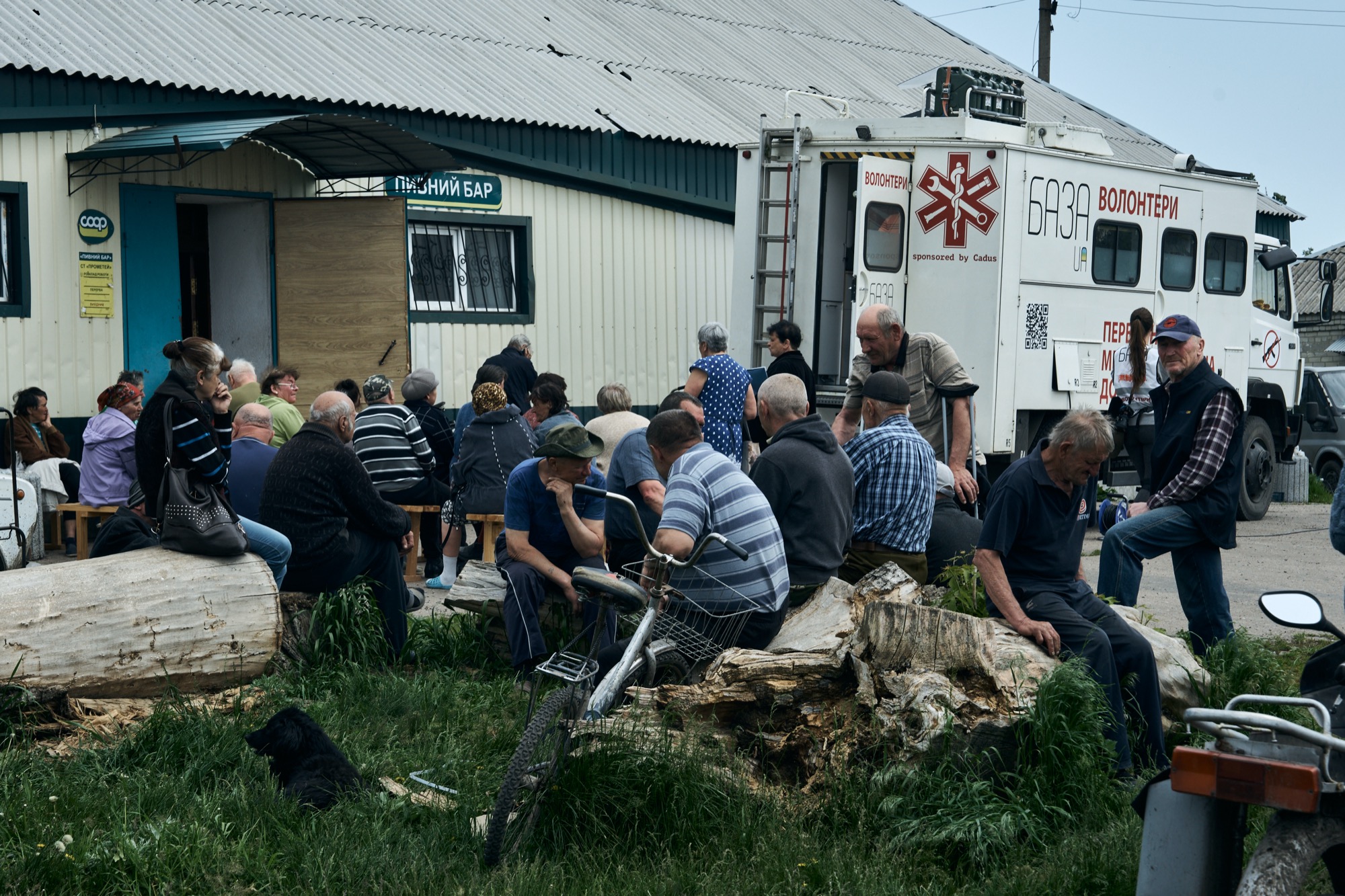 The mobile primary care consultation hours are well attended and the need in the villages is great. In addition to the doctors on site, specialists from all over the world can be connected via video. Photo: BASE UA
The mobile primary care consultation hours are well attended and the need in the villages is great. In addition to the doctors on site, specialists from all over the world can be connected via video. Photo: BASE UA
MedEvac in Ukraine
Our own team also worked tirelessly on the ground throughout the year: with up to six rescue vehicles, we brought 719 patients to safety this year in so-called MedEvac missions, i.e. transports of injured and sick people. We were also able to hand over 23 ambulances as well as numerous pieces of equipment and devices, including 90 ventilators, 16 defibrillators, eight ultrasound devices and two oxygen generators, to local rescue organizations.
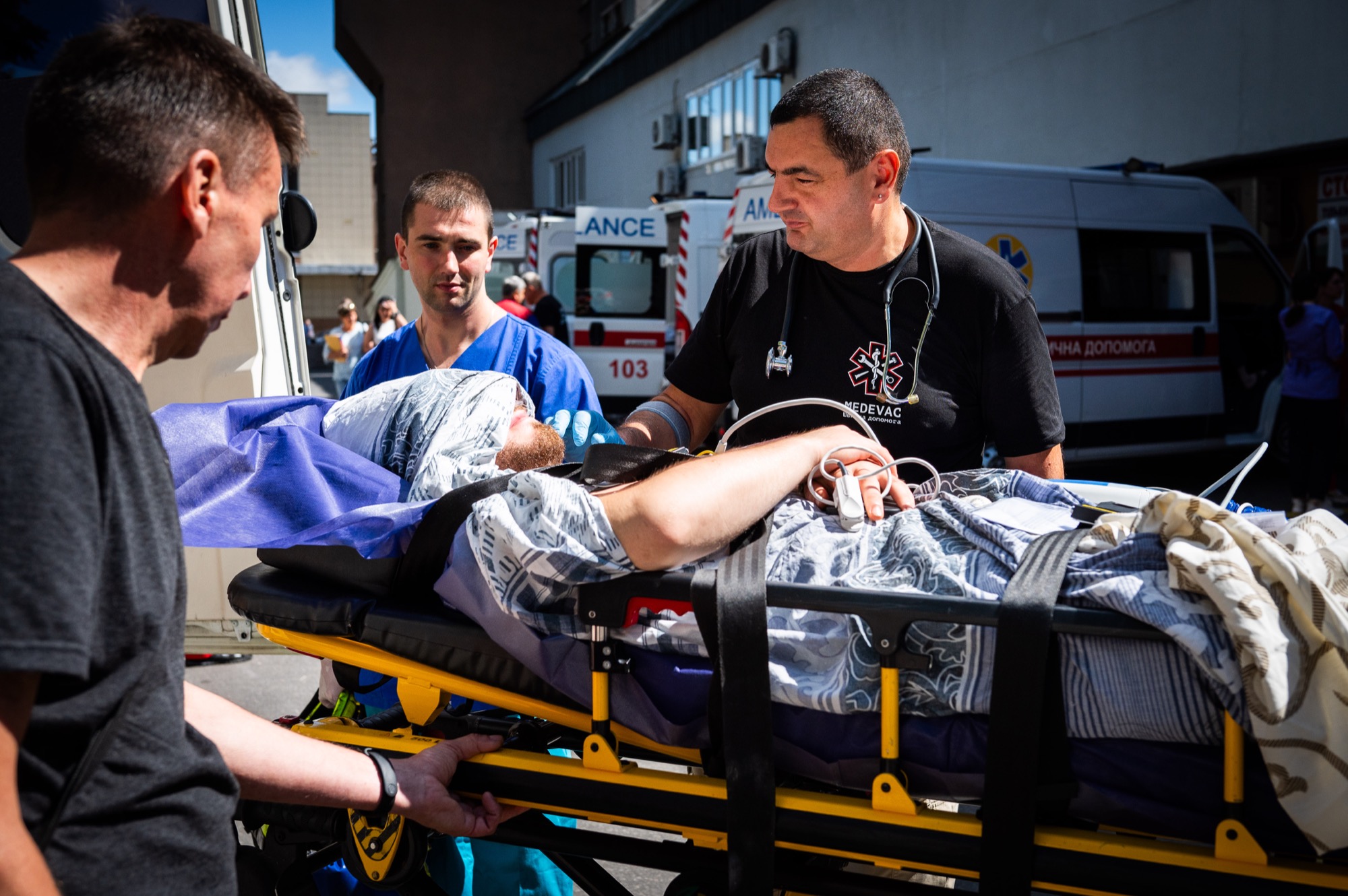 In medical cases, close cooperation between organizations, hospitals and authorities is essential so that the rescue chain runs smoothly for the benefit of the patients. Photo: Chris Grodotzki/CADUS
In medical cases, close cooperation between organizations, hospitals and authorities is essential so that the rescue chain runs smoothly for the benefit of the patients. Photo: Chris Grodotzki/CADUS
With our base of operations, we followed the events of the war, and thus the need for medical support, and shifted our activities further east to Dnipro and Kramatorsk. The majority of our missions are directly related to war injuries. Thanks to our recent cooperation with the Belgian branch of Doctors Without Borders, we are able to close a gap in intensive care transport in Pokrovsk and the surrounding area.
First aid against the war
Our training activities in Ukraine are also characterized by cooperation. Our eight different courses (link to training program on homepage) teach far more than just first aid for laypersons. Medical professionals can acquire knowledge in areas such as care after blast injuries or patient ventilation.
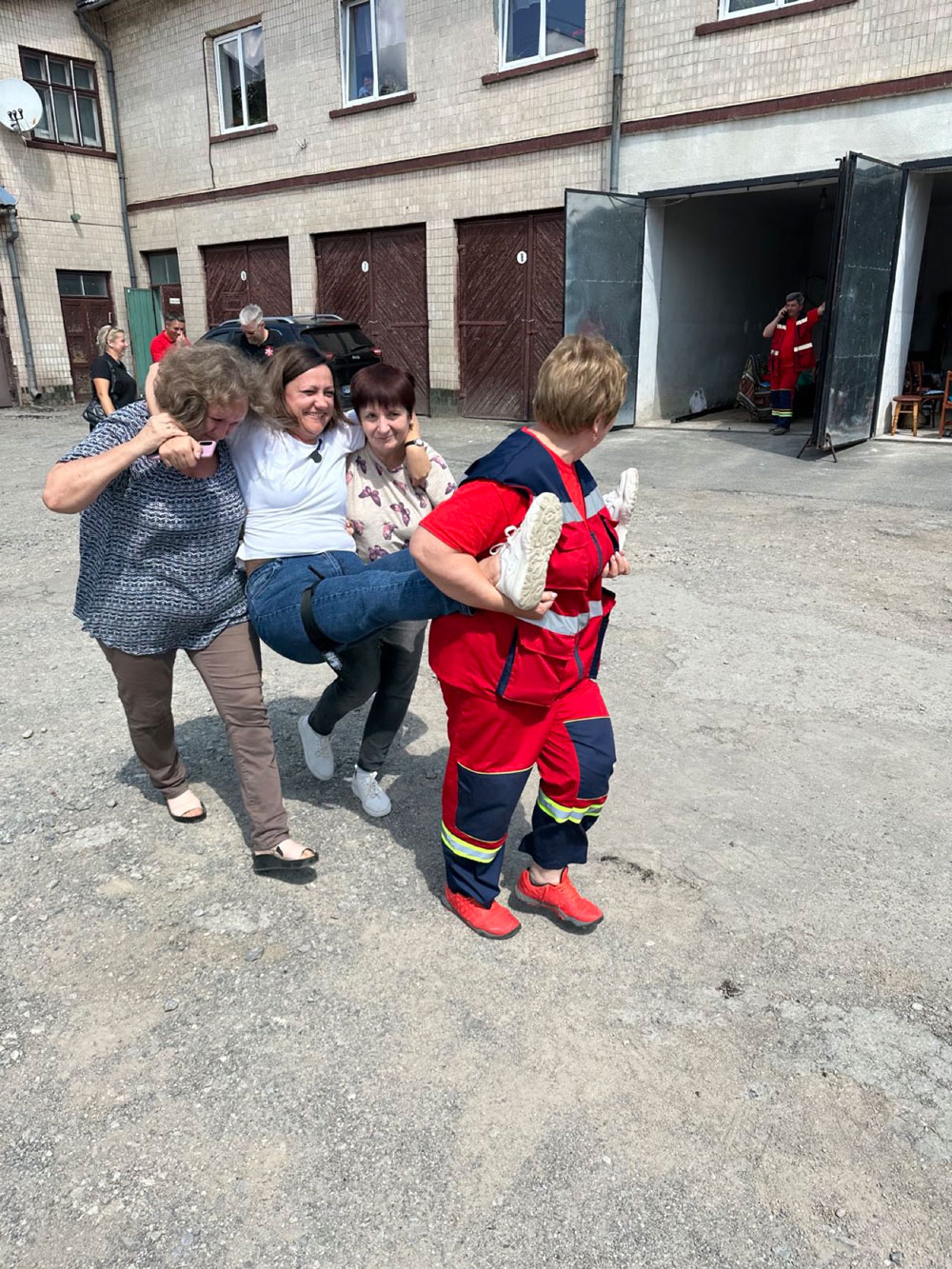 In addition to theory, practical exercises are an important part of our courses. Especially in a country where the exercise can quickly become a reality. Photo: CADUS
In addition to theory, practical exercises are an important part of our courses. Especially in a country where the exercise can quickly become a reality. Photo: CADUS
In addition to our own 123 training courses with over 1895 participants, our team has also taken part in joint training courses with other rescue organizations to ensure that the rescue chain functions smoothly in an emergency. In October, we were proud to announce a cooperation with the University of Ternopil, one of the largest medical training institutes in Ukraine. For us, this is further confirmation of how important our training program is and a further step towards handing the program over to our Ukrainian partners in the medium term.
Get Ready for EMT
Training and professionalization were also an important part of 2023 for CADUS as a whole. With our “Get Ready!” training series, which took place monthly in the Makerspace, we were able to provide ourselves, interested supporters and volunteers who would like to work for us in the future with important basics on humanitarian topics and the reality of deployments.
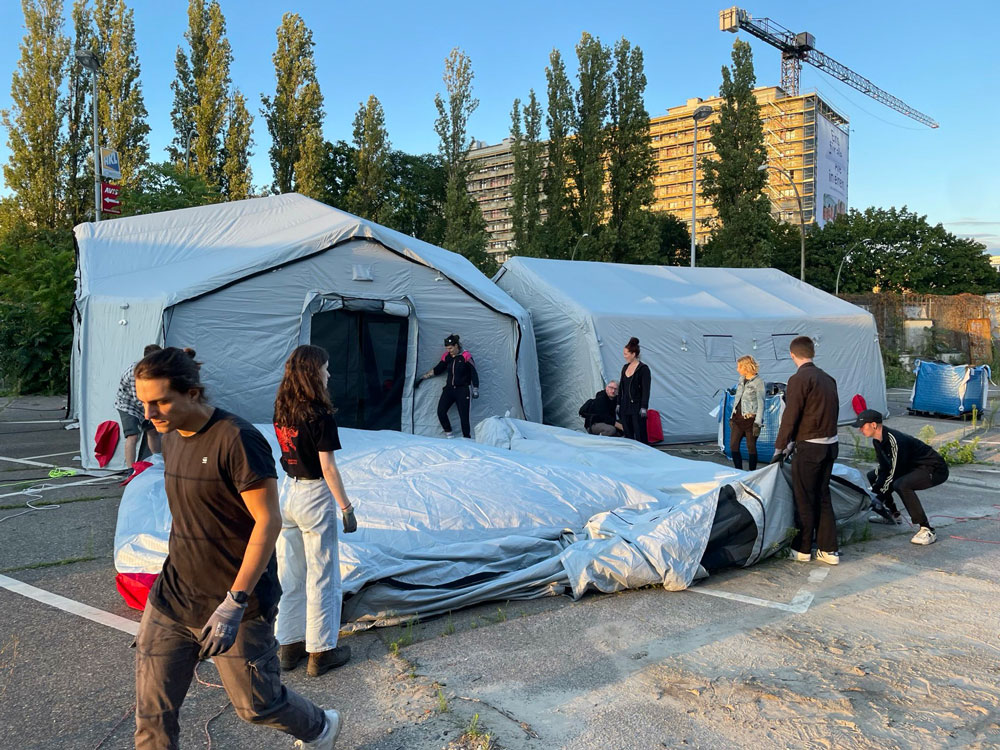 Part of our team setting up our emergency tents for practice in Berlin. Photo: CADUS
Part of our team setting up our emergency tents for practice in Berlin. Photo: CADUS
Last but not least, this type of training is a prerequisite for our certification as an Emergency Medical Team (EMT) of the World Health Organization (WHO). In the future, we will probably continue our training in a different form. What is certain, however, is that we are constantly preparing for various deployment scenarios – even if things sometimes turn out quite differently in reality.
Tanks, bombs and water?
While destructive missile attacks and bloody battles are unfortunately increasingly becoming a barely noticed part of everyday life in the public eye, an event on June 6 shook even the most jaded observer awake once again. The blowing up of the Kakhovka dam near the city of Kherson by Russian troops once again demonstrated the harshness and ruthlessness with which this war is being waged, especially by the Russians.
In addition to tanks and bombs, water was also used as a weapon – a clear war crime from which the ordinary population of the region in particular had to suffer. And will continue to suffer for a long time to come – because the consequential damage, especially to the environment and agriculture, can hardly be foreseen or quantified. The security situation did not allow us to deploy to the region for water treatment, as the region is littered with mines washed away by the flood and is under constant Russian artillery fire.
Earthquake in crisis area
This man-made tragedy was preceded by a tragedy of natural origin: the earthquake in Turkey and Syria on February 6 killed over 56,000 people in the area, making it the deadliest earthquake sinceHaiti in 2010. Although the earthquake in north-western Syria caused far less destruction and claimed far fewer victims than in Turkey, it hit the local population particularly hard.
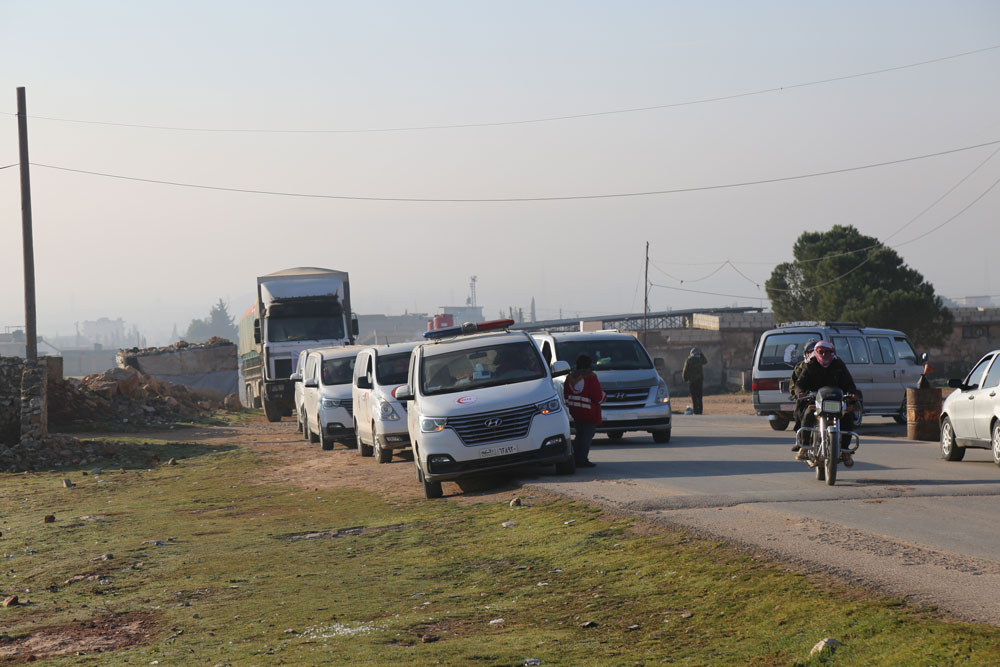 After waiting 1.5 weeks at a checkpoint on February 21, 2023, the KRC aid convoy was able to continue its route to the earthquake zone in Aleppo. The Syrian regime blocked the humanitarian shipment, intentionally wasting valuable time. Photo: KRC
After waiting 1.5 weeks at a checkpoint on February 21, 2023, the KRC aid convoy was able to continue its route to the earthquake zone in Aleppo. The Syrian regime blocked the humanitarian shipment, intentionally wasting valuable time. Photo: KRC
There are hardly any rescue structures or resources to support those affected in the region, which has been severely affected by the (civil) war. International aid was made virtually impossible by the Syrian regime and Turkey. Despite this, we were able to support our long-standing partner KRC, the Kurdish Red Crescent, with over €190,000. Unfortunately, a mission was out of the question for us here too, given the competing militias, Syrian and Turkish troops in the region. Our greatest respect therefore goes to our colleagues from KRC, who put together a convoy despite the dangers and were able to deliver relief supplies to the northwest despite the resistance of the Syrian regime.
End and beginning in north-east Syria
Our greatest respect also goes to our former employees, who founded their own organization in the course of our withdrawal from northeast Syria in the summer of 2023 and have since continued to run our hospital in the al-Hol refugee camp on their own.
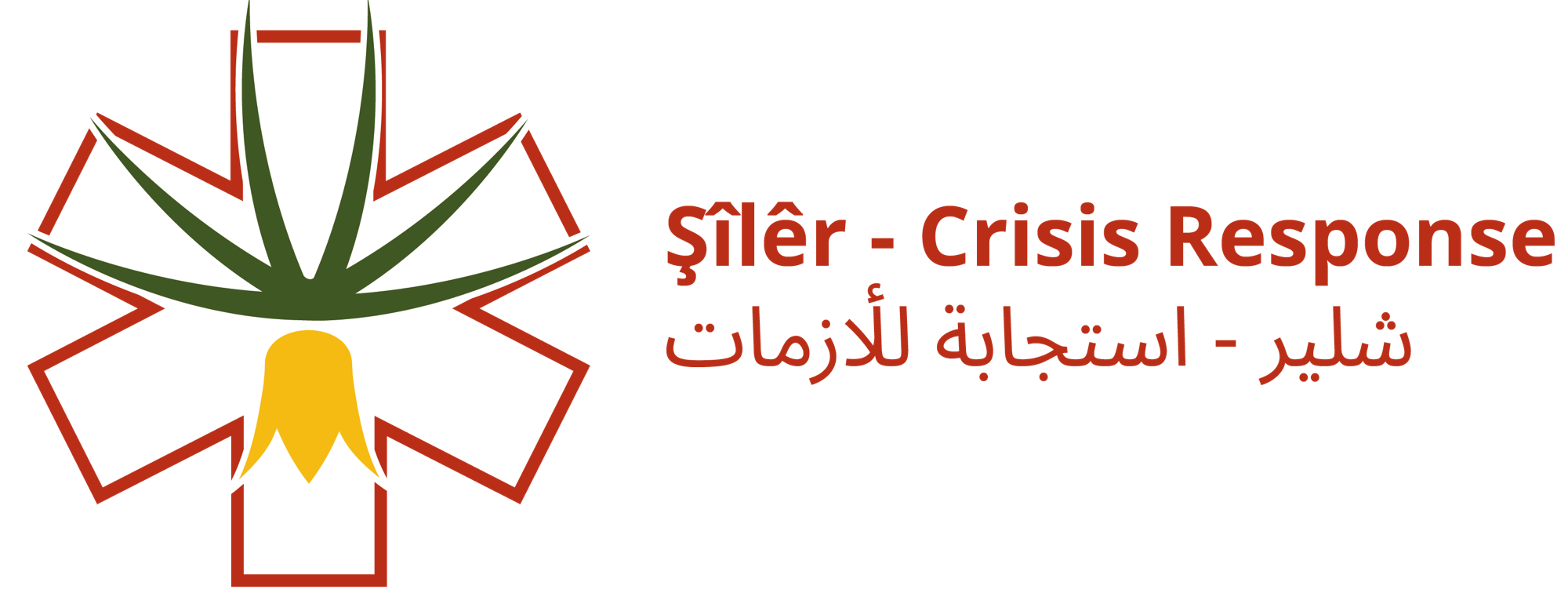 The SCR logo has adorned our former hospital in al-Hol since the middle of last year.
The SCR logo has adorned our former hospital in al-Hol since the middle of last year.
After 4.5 years, we withdrew in order to be able to focus more on our core competence, emergency aid. We are delighted that Șîlêr Crisis Response, or SCR for short, has since continued to provide all-day medical care to the more than 50,000 residents of the camp. An absolute challenge given the situation on the ground. We will continue to support SCR, KRC and the people in the region, especially in light of the recent attacks by Turkey.
Old conflict with new flames
As if all this wasn’t already more than enough for 2023, a major attack by Hamas on Israel on October 7 shook the world. The events that followed have dominated the news ever since: over 1,200 deaths in Israel and now almost 20,000 deaths in the Palestinian territories* are the result of this latest conflict in the long history of war in the region, alongside the immense destruction in the Gaza Strip and the presumably unattainable peace for a long time to come.
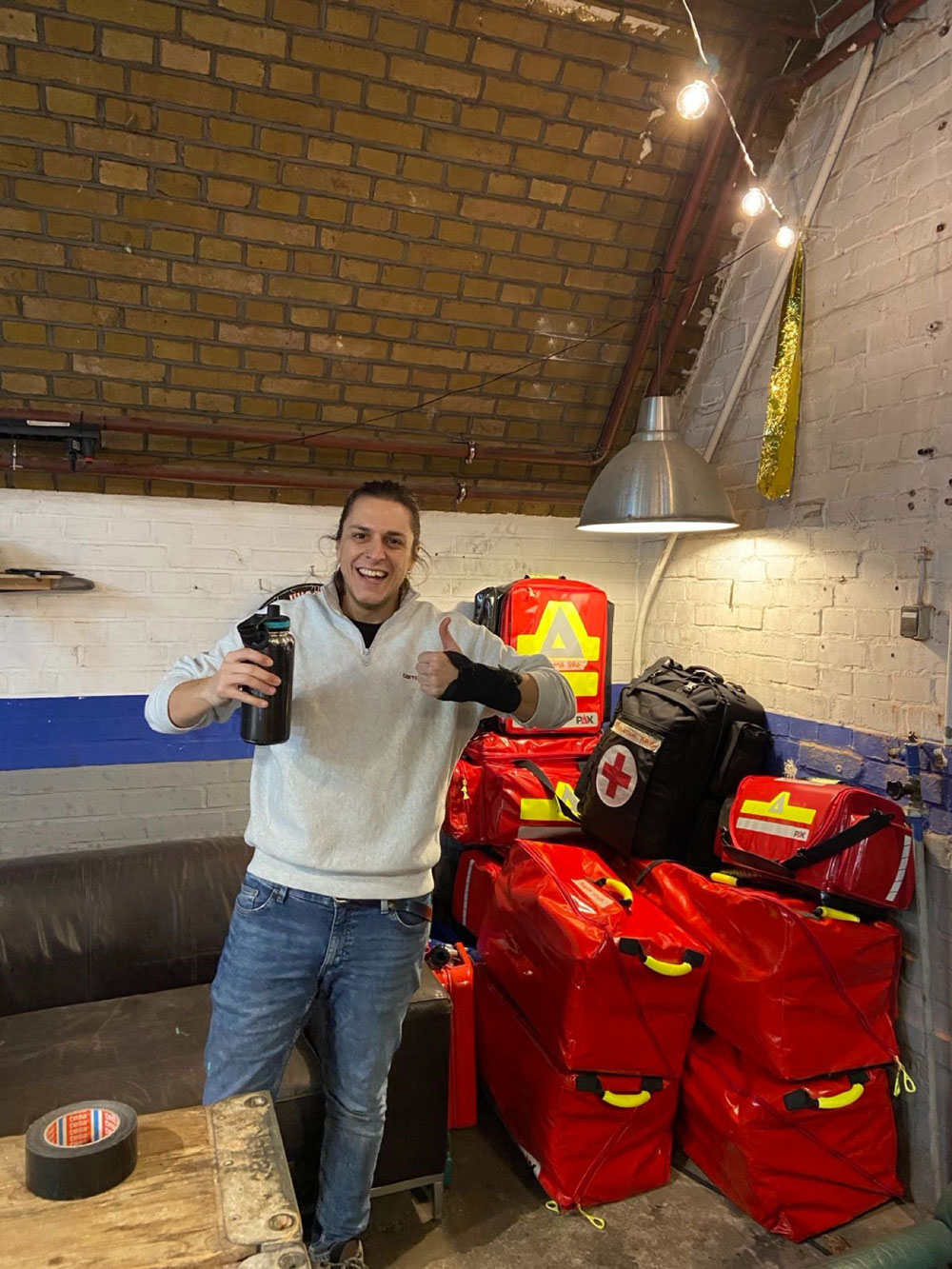 Our material for a mission to support the people in the Palestinian territories has already been packed, much to the delight of Mike, our medical director. Photo: CADUS
Our material for a mission to support the people in the Palestinian territories has already been packed, much to the delight of Mike, our medical director. Photo: CADUS
We have already notified the EMT structure of the World Health Organization (WHO) of our readiness and are in the starting blocks. Until then, there are still some logistical and security hurdles to overcome and access via neighboring countries is still difficult. We are still in contact with the EMT network and hope that the deployment will begin as soon as possible.
Outlook 2024
However, we hope even more for an end to the conflicts in Syria, Ukraine, Israel, the Palestinian territories and worldwide. Political solutions must be found for this. And as bad as it is that it has to be said: Joy or indifference to human suffering and civilian casualties is forbidden to anyone with a shred of humanity. No place for misanthropists! As a society, we must not stop noticing the nuances, we must reject nationalism and stand in solidarity with one another in crises.
We will also continue to work on this in 2024 and do our part. Be it practically with our missions in Ukraine and perhaps also in Gaza or through critical contributions and discussions on humanitarian issues and their backgrounds. Meanwhile, we are continuing to professionalize ourselves and plan to complete our certification as an EMT with the WHO in 2024. Another highlight: we are celebrating our 10th birthday! We have a lot planned for this, more on this in the coming weeks.
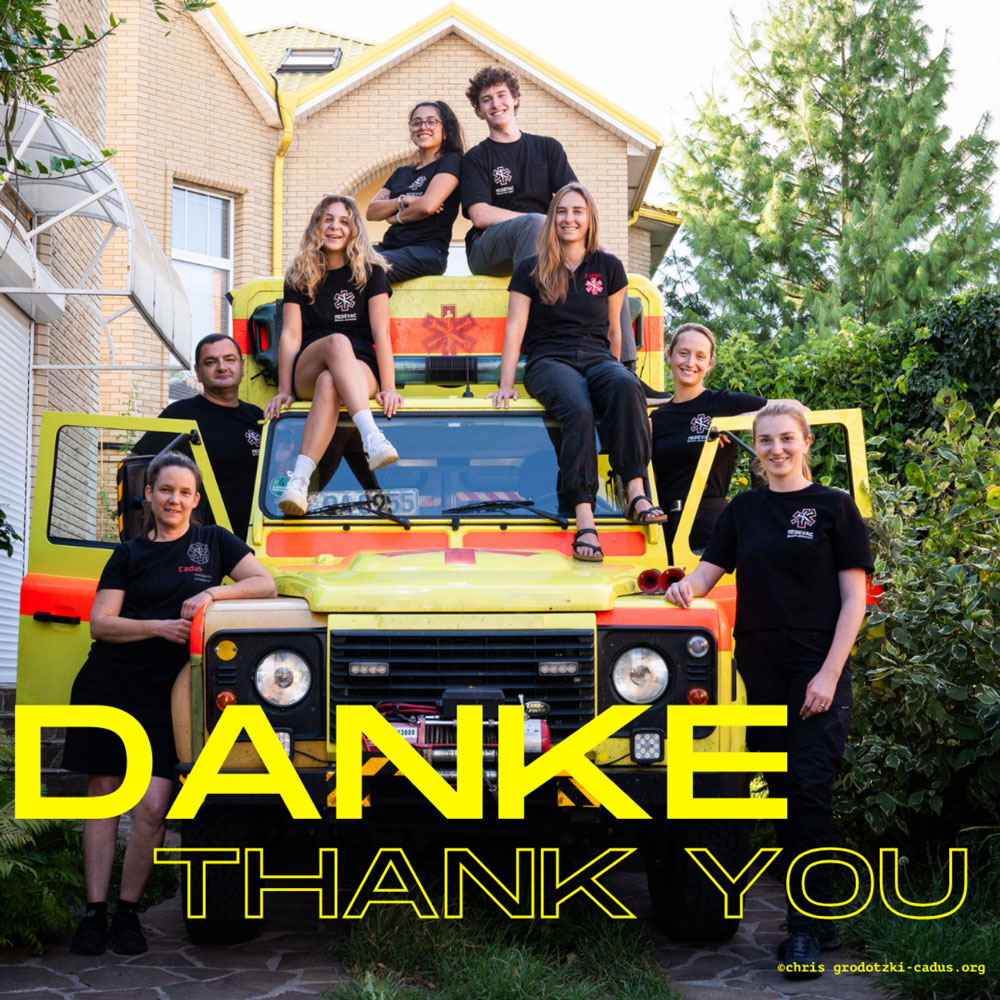 We can’t say it often enough: Thank you! Photo: Chris Grodotzki/CADUS
We can’t say it often enough: Thank you! Photo: Chris Grodotzki/CADUS
Until then, we would like to thank all our donors, supporters and volunteers who have supported us throughout the year and will hopefully continue to do so in the future to bring direct emergency aid to where it is most urgently needed.
Finally, we would like to remember all the victims of war and disasters and all those who have lost their lives in humanitarian missions.
Despite all this, we at CADUS wish you a hopefully peaceful 2024!
Jonas for the CADUS team
*Source: https://de.statista.com/statistik/daten/studie/1417316/umfrage/opferzahlen-im-terrorkrieg-der-hamas-gegen-israel/, Status Dezember 2023
By CadusPR
Stay informed about our missions, events and humanitarian emergency aid topics – with our newsletter!
Newsletter registration
I want to unsubscribe from the newsletter.



